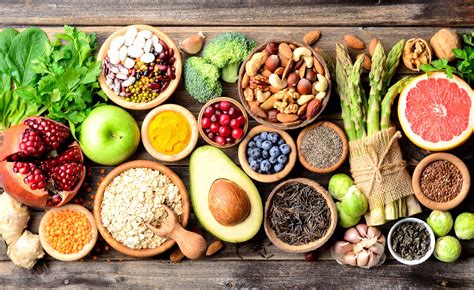Discover the principles and benefits of the Buddhist diet, and how food choices can impact spiritual development. Learn recommended foods and dietary restrictions. Start your spiritual journey today!
Understanding the Buddhist Diet
Contents
The Buddhist diet is based on the principles of mindfulness and compassion, and it plays a significant role in the spiritual development of followers. The diet is predominantly vegetarian, with many practitioners also choosing to avoid consuming meat, fish, eggs, and dairy products. The primary motivation behind the Buddhist dietary restrictions is the belief in non-violence and the intention to minimize harm to living beings. By following these dietary guidelines, individuals aim to cultivate a sense of interconnectedness and respect for all forms of life.
In line with the principles of Buddhist dietary restrictions, followers also avoid consuming intoxicants such as alcohol and drugs, as these are believed to cloud the mind and hinder spiritual progress. The emphasis is on consuming food and drink that promote mental clarity and physical well-being. The impact of food choices on spiritual development is recognized as significant, with the belief that a mindful and compassionate approach to diet can contribute to a greater sense of inner peace and harmony.
While there may be variations in the specific dietary practices followed by Buddhists across different traditions and geographical regions, there are certain recommended foods in the Buddhist diet that are generally favored. These include whole grains, legumes, fruits, vegetables, nuts, and seeds. These foods are considered to be conducive to both physical health and spiritual growth due to their natural and unprocessed nature.
By embracing Buddhist dietary practices, individuals may experience a range of benefits, including improved physical health, heightened mindfulness, and a deeper sense of empathy towards all living beings. The practice of mindful eating and the avoidance of harmful substances are seen as integral components of the path towards spiritual awakening and enlightenment.
Principles of Buddhist Dietary Restrictions
The Buddhist diet is rooted in the principles of mindfulness, compassion, and non-violence. Buddhists believe that what they eat has a direct impact on their spiritual development and overall well-being. As such, they follow specific dietary restrictions that are designed to promote ethical eating and a harmonious relationship with the world around them.
One of the primary principles of Buddhist dietary restrictions is the practice of ahimsa, or non-harming. This means that Buddhists abstain from consuming foods that involve the taking of life, such as meat, fish, and eggs. They also avoid foods that are obtained through harming living beings, such as certain kinds of honey that may harm bees in the production process.
In addition to avoiding foods that cause harm, Buddhist dietary restrictions also emphasize the importance of consuming foods that promote mindfulness and moderation. Buddhist monks and practitioners are encouraged to eat mindfully, savoring each bite and being aware of the nourishment and energy that food provides.
Furthermore, Buddhists place a strong emphasis on the idea of balance and harmony in all aspects of life, including diet. This means that they avoid consuming foods that are excessively stimulating or indulgent, such as refined sugars, processed foods, and intoxicating substances. By choosing foods that promote balance and moderation, Buddhists believe that they can cultivate a clear and peaceful state of mind.
Impact of Food Choices on Spiritual Development
Food has a significant impact on our spiritual development, and the choices we make in terms of what we eat can greatly influence our overall well-being, both physically and spiritually. The Buddhist diet, which places a strong emphasis on consuming wholesome and nourishing foods, is rooted in the belief that what we eat affects not only our physical health but also our mental and spiritual well-being.
One of the key principles of the Buddhist diet is mindful eating, which involves being fully present and aware of the food we consume. By being mindful of our food choices, we are better able to nourish our bodies and minds, and in turn, deepen our spiritual connection. By choosing to eat foods that are in harmony with nature and do not cause harm to other living beings, we can align ourselves with the Buddhist principle of non-harming (ahimsa).
Furthermore, the Buddhist diet encourages the consumption of plant-based foods such as fruits, vegetables, whole grains, and legumes, while limiting the intake of meat and animal products. This focus on vegetarianism and veganism is linked to the belief that by avoiding the consumption of animal flesh, we can cultivate a greater sense of compassion and empathy towards all living beings.
Overall, the impact of our food choices on our spiritual development is profound, and by adopting the principles of the Buddhist diet, we can nourish not only our bodies but also our souls, leading to a more harmonious and spiritually fulfilling life.
Recommended Foods in Buddhist Diet
The Buddhist diet is based on the principle of non-violence and compassion towards all living beings. As such, it predominantly consists of plant-based foods that do not involve the killing of animals. This diet is believed to promote mindfulness, a spiritual connection, and good health. The recommended foods in a Buddhist diet are those that are natural, pure, and wholesome. These include a variety of fruits, vegetables, whole grains, legumes, nuts, and seeds. These foods are considered to be essential for providing the necessary nutrients for a healthy body and mind.
Whole grains such as brown rice, quinoa, barley, and oats are staples in the Buddhist diet. These grains provide essential nutrients such as fiber, vitamins, and minerals. They are known to promote satiety and provide sustained energy throughout the day. In addition, vegetables such as broccoli, spinach, kale, and carrots are highly recommended due to their high nutrient content. These vegetables are rich in antioxidants, vitamins, and minerals that support overall health and well-being.
Fruits such as bananas, apples, berries, and citrus fruits are also favored in the Buddhist diet. These fruits are not only delicious but also provide essential vitamins, minerals, and fiber. They are known to boost the immune system and promote digestive health. Legumes such as lentils, chickpeas, and beans are an excellent source of plant-based protein and are highly recommended in the Buddhist diet.
It is important to note that the Buddhist diet encourages moderation and mindful eating. It emphasizes the practice of being thankful for the nourishment provided and being aware of the impact of food choices on one’s well-being. By consuming recommended foods in the Buddhist diet, individuals can cultivate a deeper sense of connection with their food and the world around them.
Benefits of Embracing Buddhist Dietary Practices
The Buddhist diet is based on the principle of mindful eating, which involves being aware of the food we consume and its impact on our body, mind, and spirit. By embracing the dietary practices of Buddhism, individuals can experience various benefits that contribute to their overall well-being.
One of the key benefits of embracing Buddhist dietary practices is the promotion of health and longevity. The emphasis on consuming whole foods such as fruits, vegetables, and grains helps to improve physical health and prevent the onset of chronic diseases. Additionally, by avoiding the consumption of processed and unhealthy foods, individuals can maintain a healthy weight and reduce the risk of obesity-related health issues.
Furthermore, adhering to the principles of the Buddhist diet can lead to mental clarity and improved emotional well-being. The practice of mindful eating encourages individuals to be present in the moment and pay attention to their thoughts and feelings surrounding food. This can lead to a greater sense of peace and calm in daily life, as well as a deeper understanding of the connection between body and mind.
Another benefit of Buddhist dietary practices is the spiritual nourishment it provides. By consuming food that is grown and prepared with intention and mindfulness, individuals can cultivate a deeper sense of gratitude and awareness for the natural world and the interconnectedness of all beings. This can contribute to a greater sense of spiritual fulfillment and harmony in life.
In conclusion, embracing the dietary practices of Buddhism offers a range of benefits that encompass physical, mental, emotional, and spiritual well-being. By adopting a mindful and conscious approach to eating, individuals can experience improved health, inner peace, and a greater sense of connection to the world around them.












